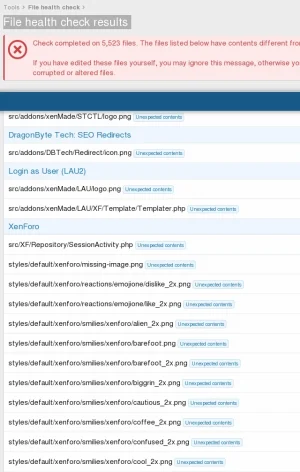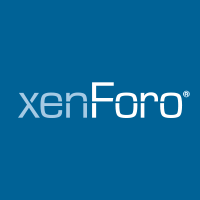Masetrix
Well-known member
A whitelist for entries in the file health check to avoid this:

and so on.....
Reason:
I additionally compress the graphics on the server, as well as the graphics of Xenforo.
Then the "File health check" shows many "Falsepositves".
Also, I have to change the source code for many an addon which shows many "false positives" in the "File health check".
In principle, that's a good thing, but you do not recognize in the multitude of "false positives" anymore if an unwanted change to other checked files actually takes place.
A whitelist for yourself and wanted changed files could help here.

and so on.....
Reason:
I additionally compress the graphics on the server, as well as the graphics of Xenforo.
Then the "File health check" shows many "Falsepositves".
Also, I have to change the source code for many an addon which shows many "false positives" in the "File health check".
In principle, that's a good thing, but you do not recognize in the multitude of "false positives" anymore if an unwanted change to other checked files actually takes place.
A whitelist for yourself and wanted changed files could help here.
Upvote
3
